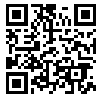Foreign media news on October 20: Argentina began to plant genetically modified wheat, which caused an uproar in neighboring Brazil and may prompt Brazil to import wheat from the United States, Canada and Ukraine.
Argentina has planted about 55000 to 60000 hectares of genetically modified wheat, which can better resist drought. Considering the average unit yield of wheat in Argentina, the output of the first batch of transgenic wheat may reach 200000 tons.
Argentina approved the commercialization of genetically modified wheat in the domestic market last year. The export sector is awaiting approval from Brazil. Usually, Brazil purchases wheat from Argentina, accounting for about 46% of Argentina's wheat production.
Rubens Barbosa, President of the Brazilian Wheat Industry Association (abitrigo), said that if the Brazilian government allows the import of this wheat from Argentina, Brazilian consumers may react negatively because no other country has approved GM wheat for human consumption. The Association urged Brazil's National Technical Committee for Biosafety (CTNBio) to refuse to approve the application to allow human and animal consumption of GM wheat, and asked the Brazilian Ministry of agriculture to prohibit GM wheat from entering Brazil.
Barbosa said that if Argentina allows the commercialization and export of genetically modified wheat, Brazilian flour processors may stop importing wheat from Argentina. For this reason, abitrigo pressed CTNBio to reject the application. CTNBio has postponed the date of deciding whether to approve the commercialization of hb4 transgenic wheat to November. This wheat is produced by bioceres in Argentina and represented by TMG in Brazil. TMG also develops its own genetically modified crops.
Barbosa said that without Brazil's approval, Argentina is unlikely to promote the export of GM wheat, because doing so will lose the Brazilian market. There are many other countries around the world that can supply wheat to Brazil, especially the United States, Canada and Ukraine. In 2010, Brazil imported 4 million tons of North American wheat because of the bad weather in Argentina. Brazil's annual wheat consumption reaches 12 to 13 million tons, and its annual import volume is 6 to 7 million tons.
Marcelo Barker, general manager of a wheat brokerage firm in southern Brazil, said that it is more feasible for Northeast Brazil to import wheat from the northern hemisphere because of its closer geographical location and easier access to competitive prices. However, the situation is very different in the main consumption areas and sales areas, especially in the southeast. If the purchase of wheat from Argentina is restricted, it may raise the price of wheat and the cost of food. This year, the low global wheat inventory and the reduction of production in some countries have boosted the sharp rise of wheat prices.
The data submitted by TMG to CTNBio showed that transgenic wheat could increase wheat yield by 40%. However, there are few studies on the safety of transgenic wheat consumption. Although genetically modified soybeans and corn have been planted on a large scale around the world, critics point out that these genetically modified crops are mainly used to produce feed, and human consumption is mainly processed foods such as high fructose syrup.
Even if the Brazilian government prohibits the import of genetically modified wheat, according to the experience in recent years, it is difficult to keep Brazilian farmers away from this drought resistant genetically modified seed. In the late 1990s, Argentine farmers began to grow genetically modified soybeans. At that time, farmers in southern Brazil smuggled genetically modified soybeans from Argentina, although the Brazilian government had not approved the planting of genetically modified soybeans at that time. Some people in the industry are worried that this situation may repeat, this time GM wheat.
Source: beer industry information network
 English
English








